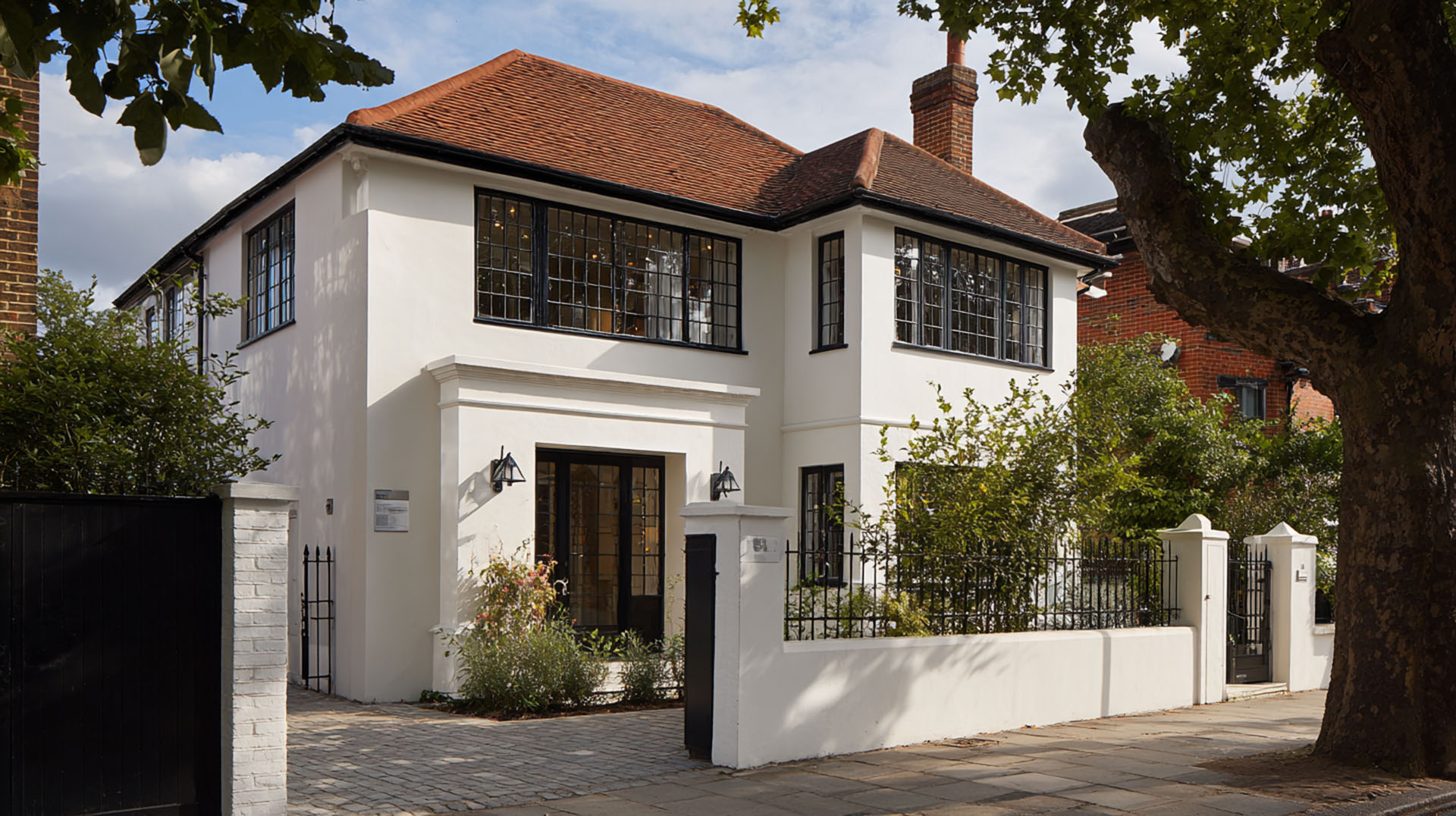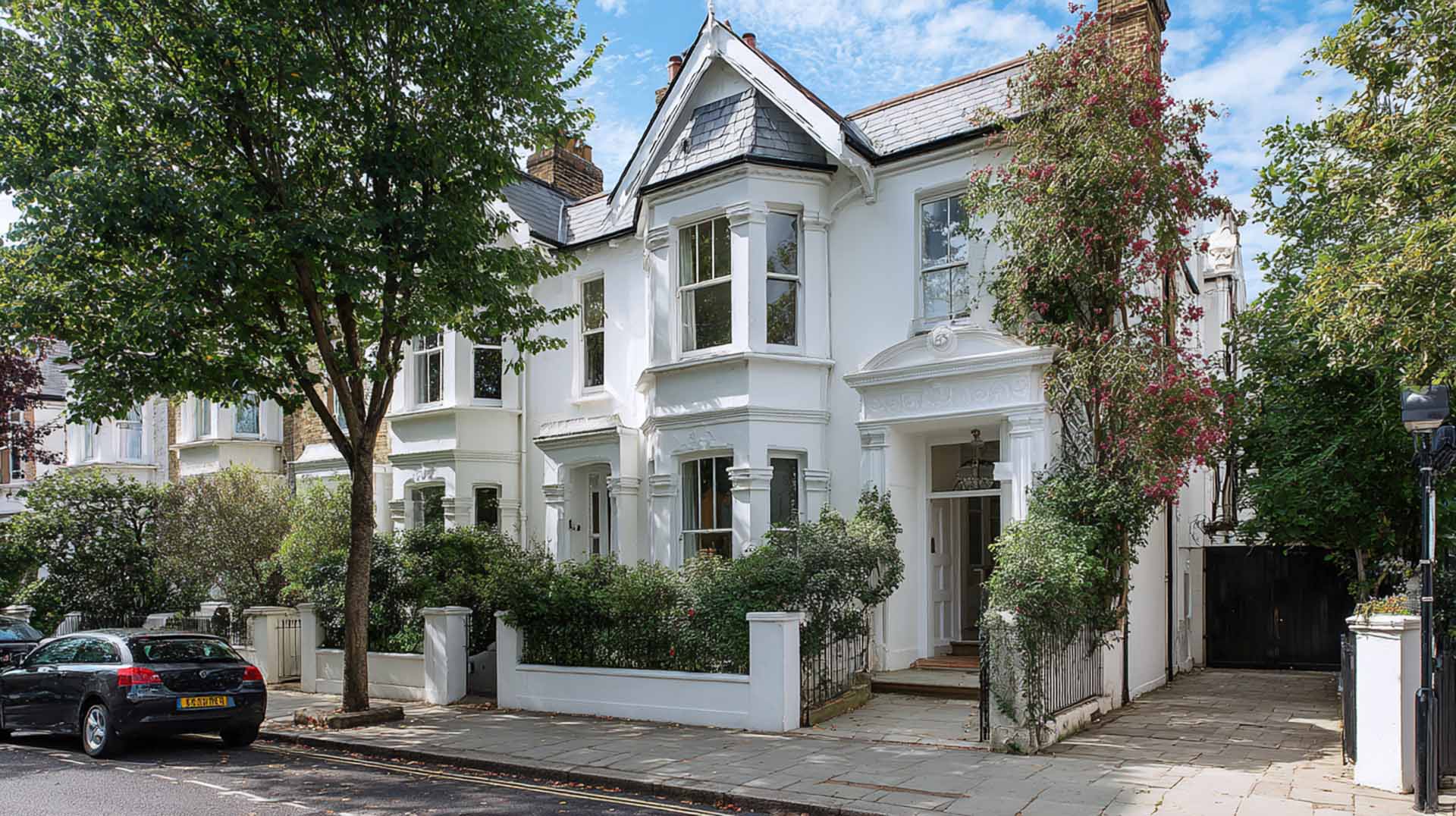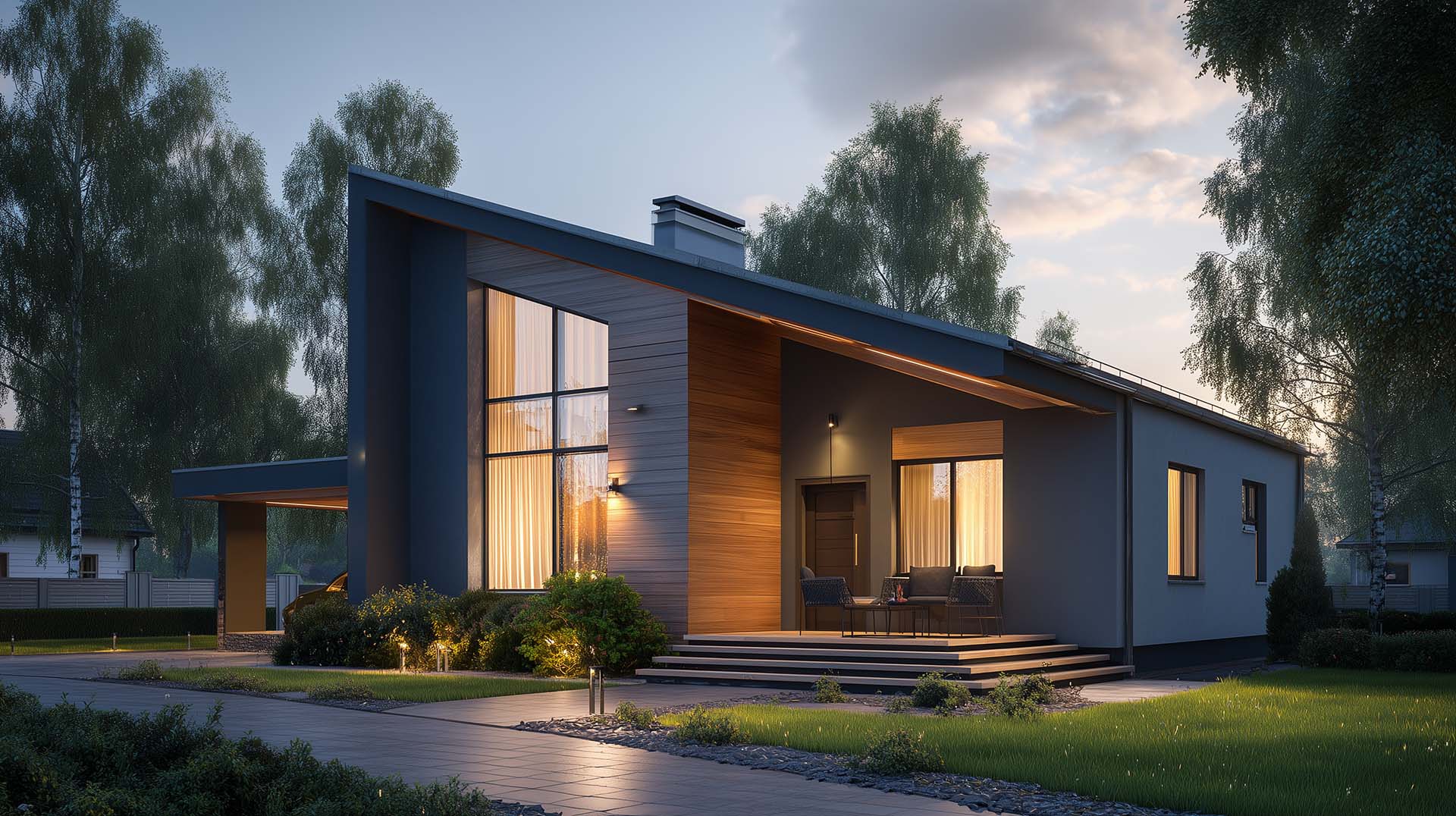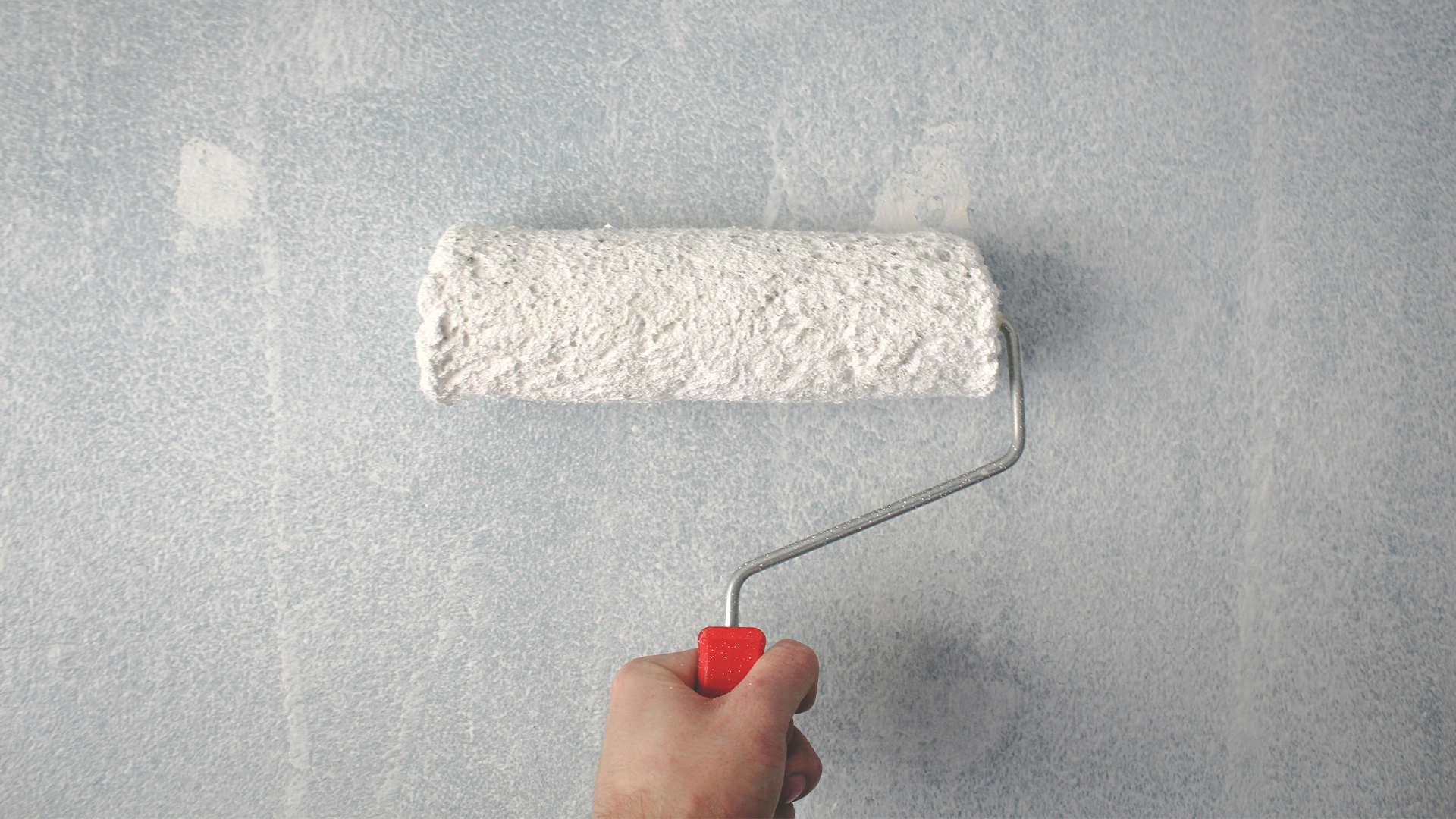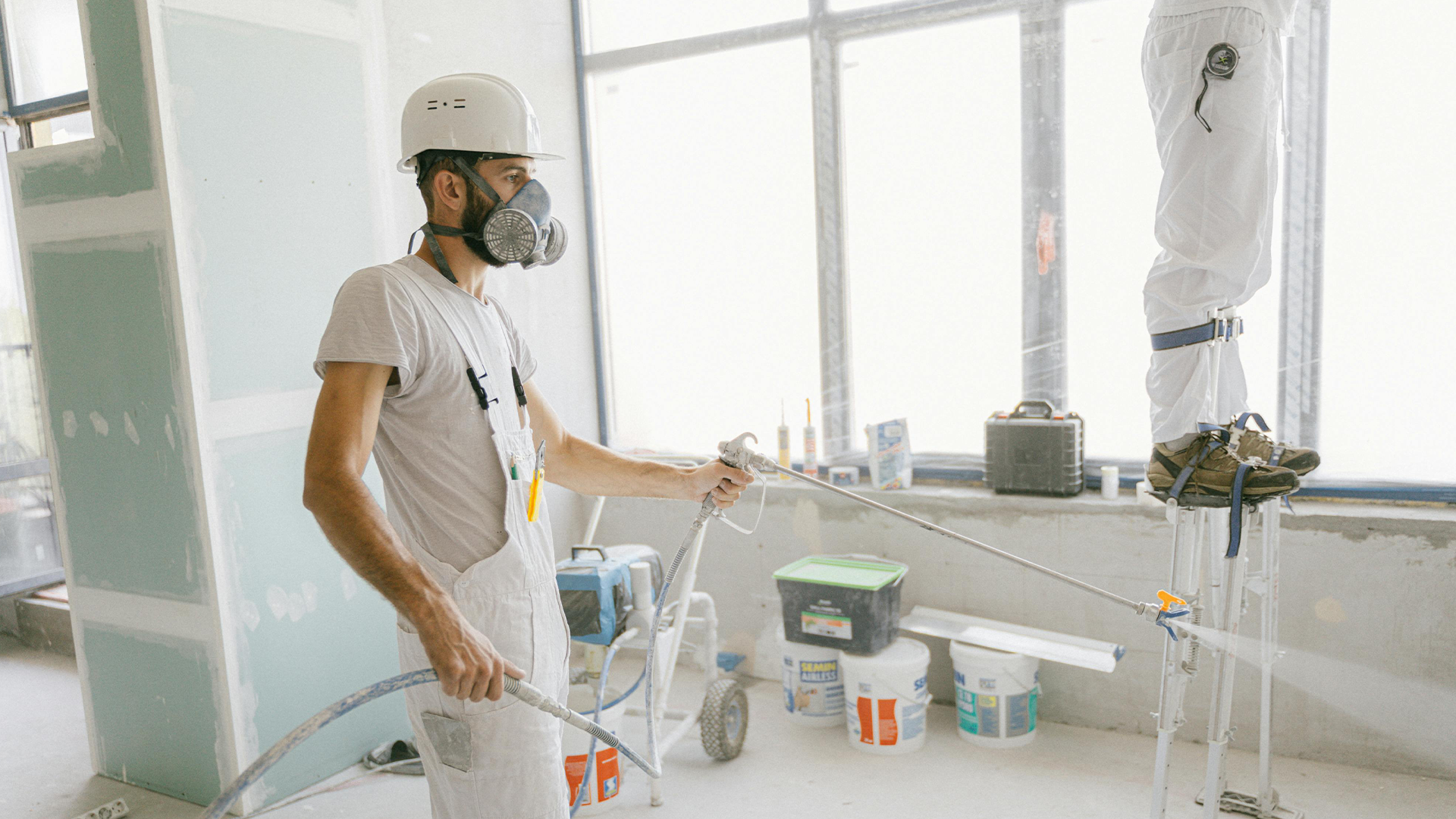Key Take Aways
Masonry paint is a durable, breathable coating for exterior brick, stone, and concrete surfaces, protecting against weather and damp.
It works by sealing porous surfaces while allowing moisture to escape, preventing mould and algae growth.
Choosing the right masonry paint depends on surface type, condition, desired finish, and local climate.
Masonry paint can be applied over existing paint if the surface is well-prepared and stable.
High-quality masonry paint can last 10–15 years, with some offering up to 20-year guarantees.
Application requires a clean, dry surface and is best done with two coats using a brush, roller, or sprayer.
Avoid painting in cold or wet weather; most products need a minimum temperature of 5°C–10°C.
Primer is generally optional unless the surface is porous, chalky, or shows strong colour contrasts.
Maintenance involves occasional cleaning and touch-ups to preserve appearance and performance.
Masonry paint can be used indoors on suitable surfaces like brick or stone in damp areas, with care.
Introduction
As an exterior wall coatings and weatherproof coatings specialist in the UK, All Weather Coating has extensive experience with masonry paint. We understand the concerns and questions homeowners may have about this essential component of exterior home maintenance. In this blog, we address the top 10 frequently asked questions about masonry paint, providing expert guidance to help you make the right choices for your home.
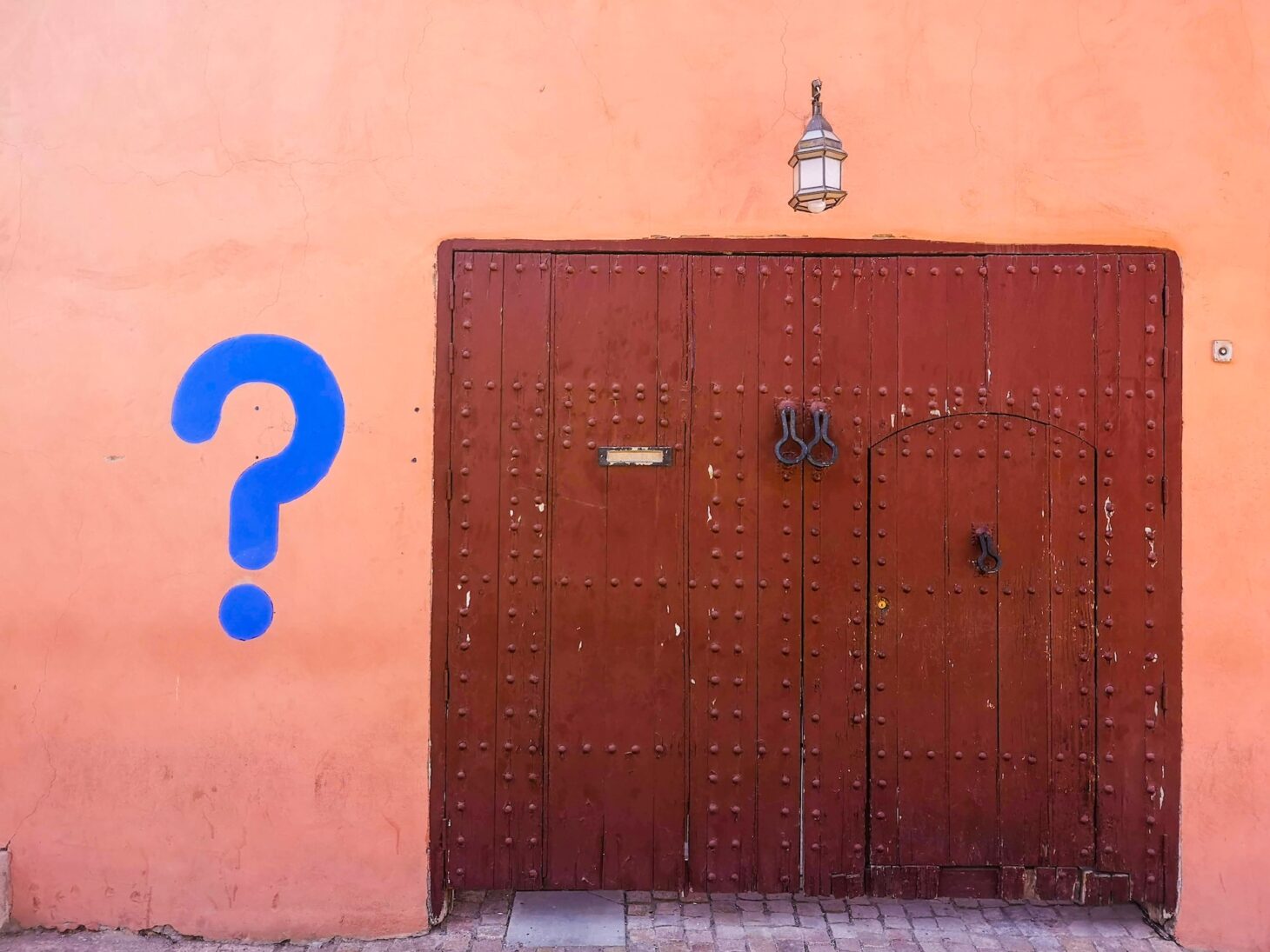
1. What is masonry paint?
Defining Masonry Paint
Masonry paint is a specialist paint formulated for use on exterior brick, stone, concrete, and other porous surfaces. It provides a protective layer against weathering, damp, and other environmental factors, while also enhancing the appearance of your home. Masonry paint is designed to be highly durable and long-lasting, making it a popular choice for homeowners looking to protect and refresh their property’s exterior.
2. How does masonry paint work?
The Protective Mechanism of Masonry Paint
Masonry paint works by forming a protective barrier on the surface of the masonry, sealing the porous materials and preventing moisture ingress. This barrier not only protects your home from weather damage but also allows the masonry to breathe, reducing the risk of trapped moisture and subsequent damage. Many masonry paints also contain added fungicides and algaecides to help prevent the growth of mould and algae, keeping your home’s exterior looking fresh and clean.
3. How do I choose the right masonry paint?
Factors to Consider When Choosing Masonry Paint
When choosing masonry paint, consider factors such as the type of masonry, the condition of the surface, the desired finish, and the climate in your area. High-quality masonry paints are typically more durable and long-lasting, so it’s worth investing in a reputable brand. You may also want to choose a paint with added features, such as anti-mould properties or self-cleaning technology.
4. Can I apply masonry paint over existing paint?
Preparing the Surface for Masonry Paint
Yes, you can apply masonry paint over existing paint, provided the surface is properly prepared. First, remove any loose or peeling paint using a scraper or wire brush, then clean the surface thoroughly to remove dirt, algae, and mould. If the existing paint is in good condition, you can apply a coat of masonry paint directly onto the surface. If the existing paint is powdery or chalky, use a stabilising primer before applying the masonry paint.
5. How long does masonry paint last?
Durability and Lifespan of Masonry Paint
The lifespan of masonry paint can vary depending on the quality of the paint, the surface it’s applied to, and the climate. High-quality masonry paints typically offer a lifespan of 10-15 years, while some premium paints come with guarantees of up to 20 years. Proper surface preparation and application techniques can also prolong the life of your masonry paint.
6. How do I apply masonry paint?
Tips for Applying Masonry Paint
Masonry paint can be applied using a brush, roller, or spray equipment. Regardless of the method, ensure the surface is clean, dry, and free of loose material before you begin. Apply at least two coats of paint, allowing each coat to dry thoroughly before applying the next. Follow the manufacturer’s instructions for the recommended drying times and conditions.
7. Can I paint masonry in cold or wet weather?
Weather Conditions for Masonry Paint Application
It is not recommended to apply masonry paint in cold or wet weather. Most masonry paints require a minimum temperature of around 5°C to 10°C for proper application and drying. Additionally, the surface must be dry and free from frost. Painting in cold or wet conditions can result in poor adhesion and a reduced lifespan for the paint. Always check the manufacturer’s guidelines for the optimal temperature and weather conditions before starting your project.
8. Do I need to use a primer with masonry paint?
Priming the Surface for Masonry Paint
In most cases, a primer is not necessary when using masonry paint on a properly prepared surface. However, if the surface is highly porous, chalky, or has a significant colour difference from the new paint, using a stabilising primer or sealer may improve adhesion and coverage. Always follow the paint manufacturer’s recommendations for the specific product you are using.
9. How do I maintain my masonry paint?
Maintenance Tips for Masonry Paint
Masonry paint is designed to be low maintenance and long-lasting. However, to keep your home’s exterior looking its best, it’s a good idea to periodically inspect the paintwork for signs of wear, such as peeling or flaking. Clean the surface as needed to remove dirt, algae, and mould. If you notice any areas that need touch-ups or repairs, address them promptly to prevent further damage.
10. Can I use masonry paint on interior walls?
Masonry Paint for Interior Applications
While masonry paint is specifically formulated for exterior use, it can also be used on interior walls in certain circumstances. It may be suitable for use on interior brick or stone walls, particularly in areas with high humidity or moisture, such as basements or utility rooms. However, it’s important to ensure that the paint is compatible with the interior surface and conditions before proceeding. Always consult the manufacturer’s guidelines and consider consulting a professional for advice.
Conclusion
In conclusion, masonry paint plays a crucial role in safeguarding and improving the appearance of your home’s exterior. Equipped with the knowledge of masonry paint basics, from application techniques to proper maintenance, you can make well-informed decisions that will contribute to the long-lasting beauty and protection of your property. Furthermore, using high-quality masonry paint and following the manufacturer’s guidelines will help ensure the best possible results for your project.
By addressing common concerns and answering frequently asked questions, we hope this guide has provided valuable insights into the world of masonry paint. However, we understand that every home is unique, and you may encounter specific challenges or have additional questions related to your project.
As specialists in exterior wall coatings and weatherproof coatings in the UK, All Weather Coating is here to assist you throughout your masonry paint journey. Our team of experts is always ready to provide tailored advice, recommendations, and support to help you achieve the desired outcome for your home’s exterior. Don’t hesitate to contact us for a consultation or any further assistance with your masonry paint project. Your home deserves the best protection and care, and we’re here to help you every step of the way.
